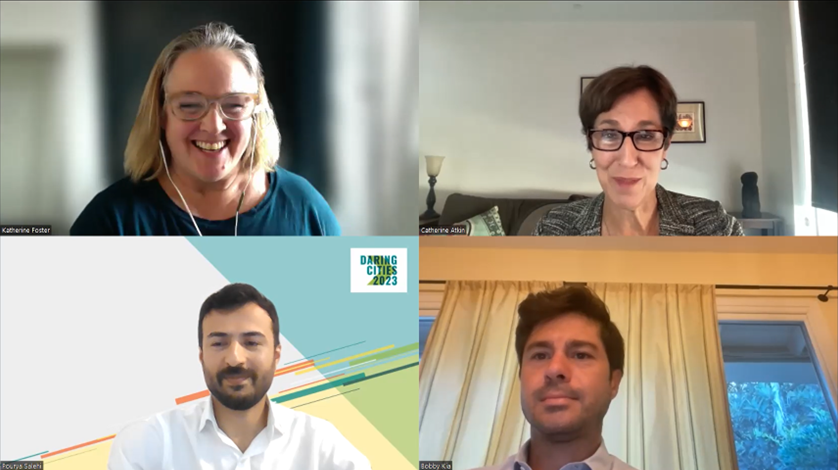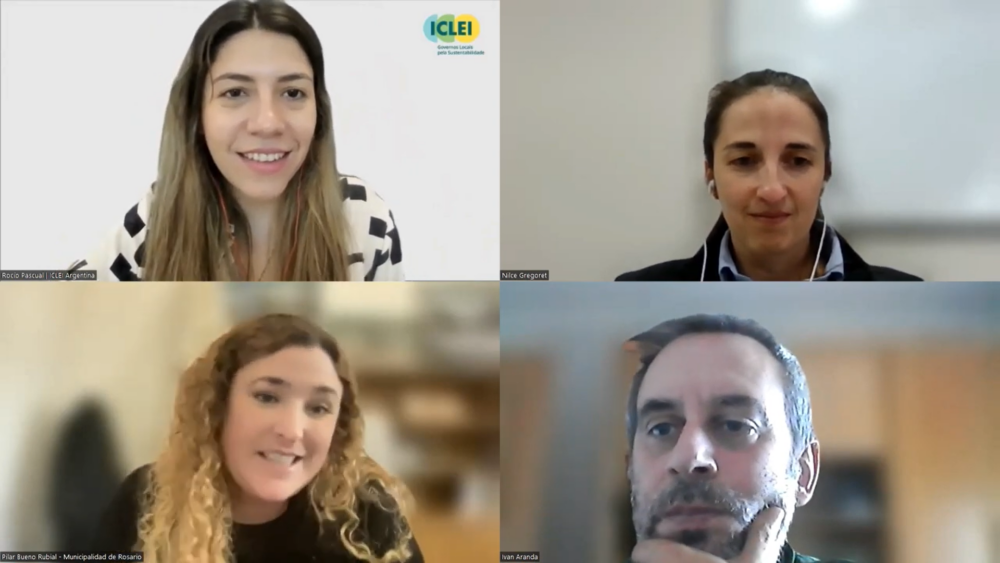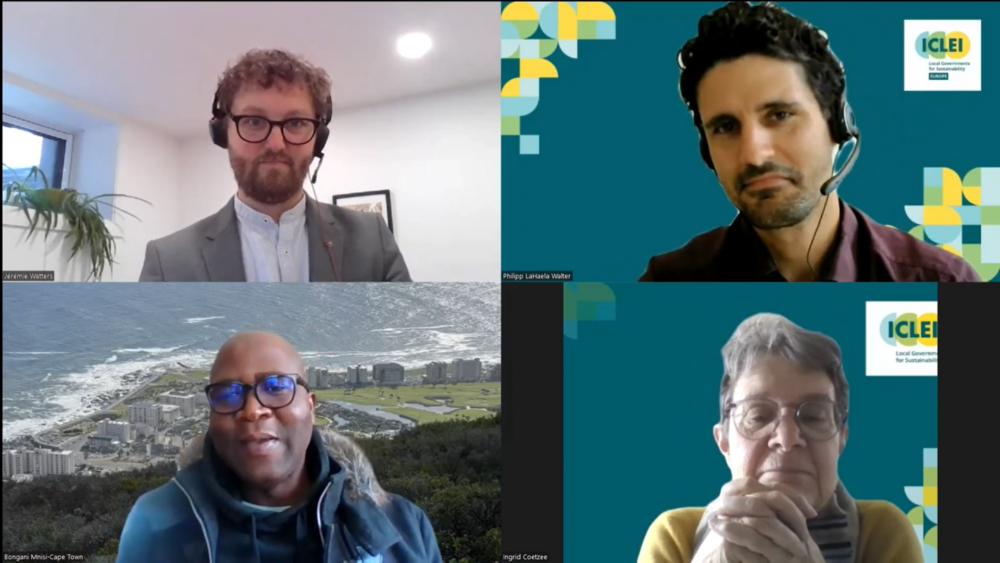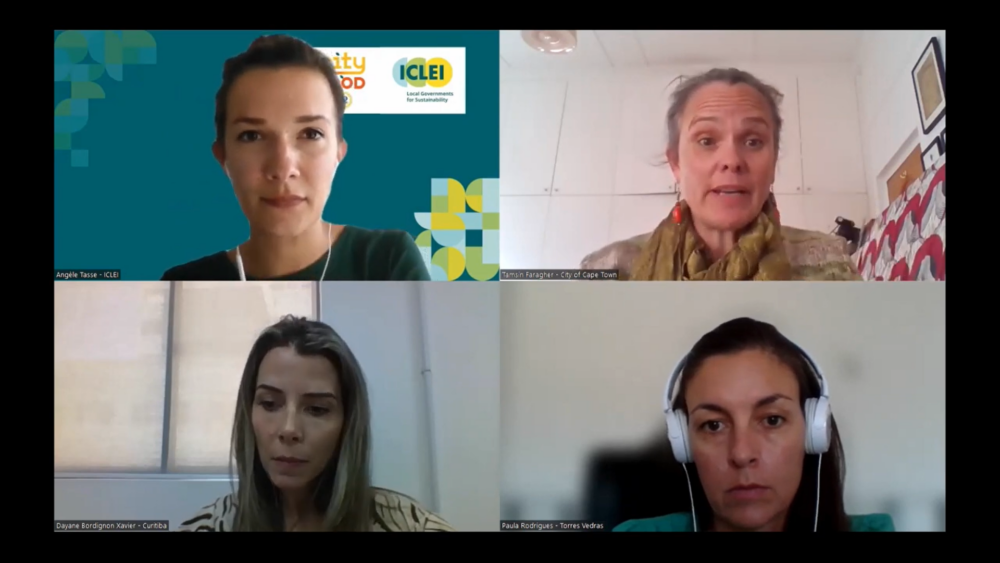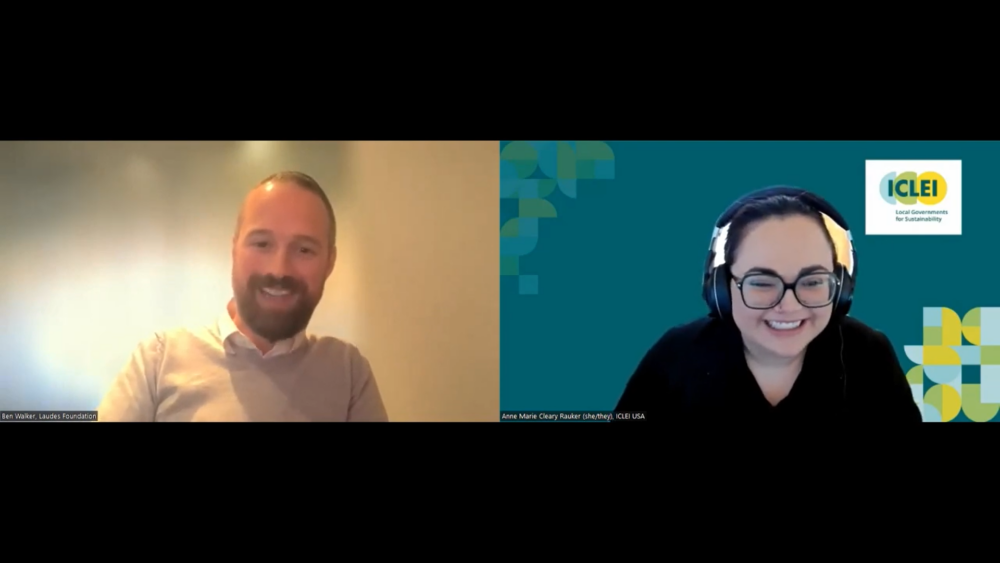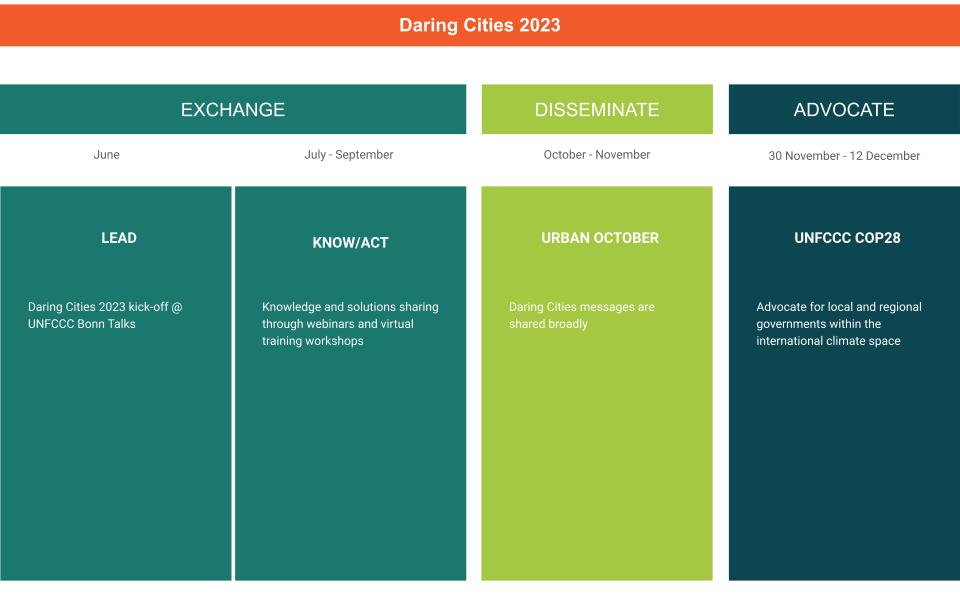
Daring Cities 2023 – Cornerstones & Program
Since 2021, Daring Cities has been structured around three cornerstones – Exchange, Disseminate, and Advocate – in order to guide and empower urban leaders already responding ambitiously to the climate emergency within their jurisdictions. For cornerstone I – Exchange – we have an in-person and a virtual part: the Daring Cities 2023 Dialogues and the Virtual Forum. Check out the program below! For the live broadcasting options during the Daring Cities 2023 Dialogues please scroll to the bottom of the page.
To learn more about the Daring Cities Cornerstones click here.
